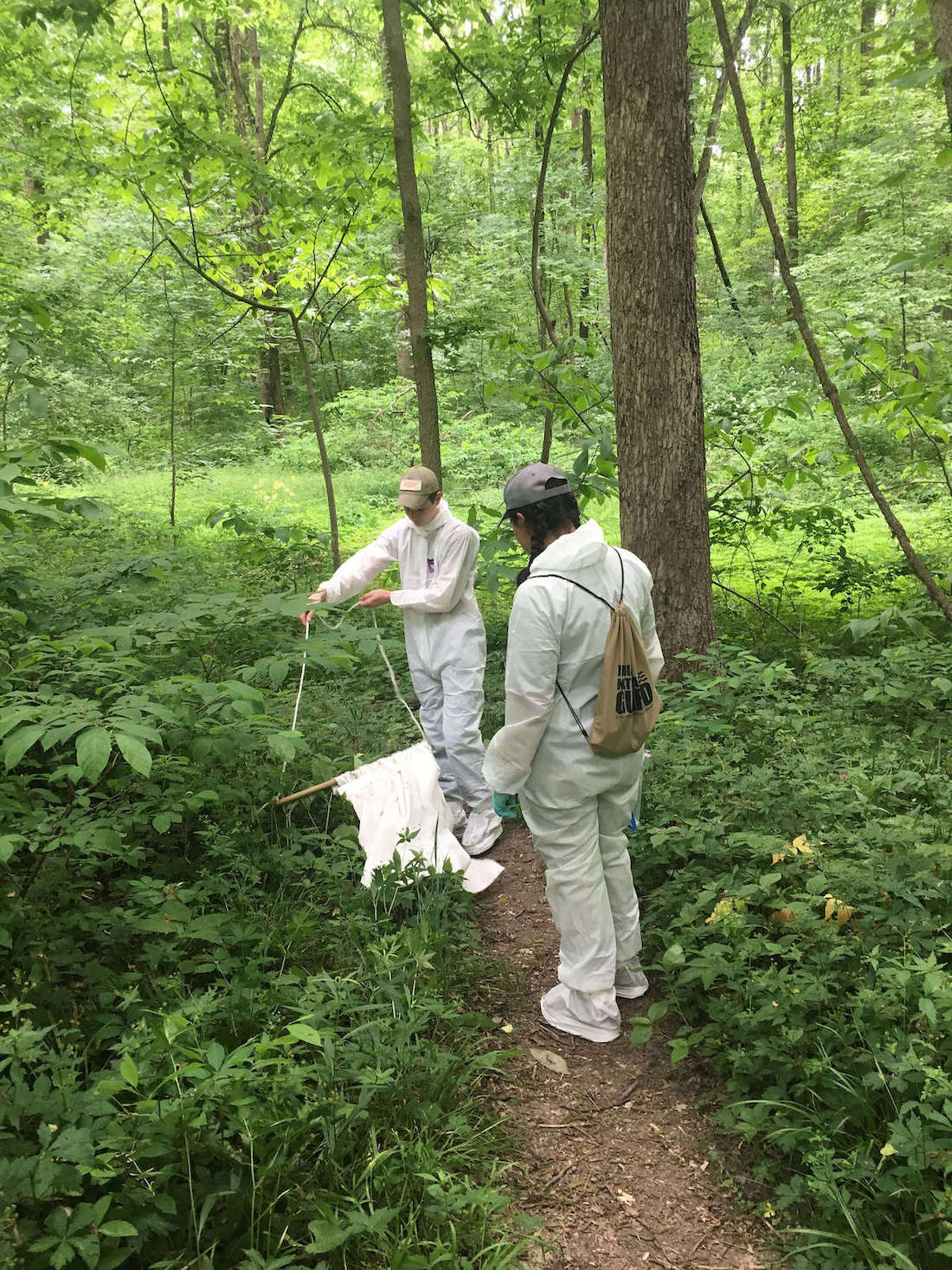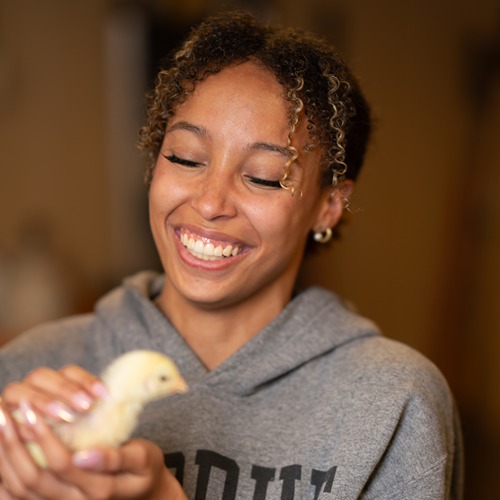Purdue seeking citizen scientists with time to track down ticks
Hoosiers and residents of neighboring states looking for something to do while social distancing during the COVID-19 pandemic could consider becoming citizen scientists.
Purdue University entomologist Cate Hill is looking for volunteers willing to find ticks and send them to the university where they’ll be stored and then analyzed once regular research operations resume.
Hill runs the Tick INsiders project, which aims to advance detection, diagnosis and treatment of tick-borne diseases in Indiana. To do that, they need to know which bacteria and viruses are present in the state’s tick population.
“One reason diagnosing and treating tick-borne diseases is difficult is because every tick bite is different. When you add human biology into that picture, you get another layer of complexity,” said Hill, who is a professor in the Department of Entomology. “Developing new therapeutics or vaccines requires knowledge about how patients’ bodies are affected by and react to the different pathogens that can be transmitted in a tick bite. Gathering ticks and understanding what they carry is a critical first step toward those goals.”
Tick INsiders started in 2017 with Hill’s laboratory tracking down ticks and later included teams of high school students. Last year, they opened the project to anyone who wanted to send in ticks, and they’re putting out the call again this year.
“During the stay-at-home orders, people are looking for things to do. It’s the perfect time to get involved,” Hill said. “If you’ve got a tick crawling on you from your backyard, you can send that in. Or if you want, you can create a tick drag and look for them in your neighborhood or nearby wooded areas so long as you’re following distancing and safety guidelines and government restrictions related to the pandemic.”
In particular, the team is looking for Ixodes scapularis (lyme disease tick), Dermacentor variabilis (American dog tick), and Amblyomma americanum (lone star tick). They are known to carry the pathogens that lead to Lyme disease, anaplasmosis, Rocky Mountain spotted fever, alpha gal and other illnesses.
The data is used to determine geographic range of each type of tick and the pathogens they carry. Hill’s team then develops detailed, region-specific disease-risk maps.
The Tick INsiders website has detailed instructions and videos for building a tick drag cloth, safely collecting ticks and sending in specimens. Ticks that have bitten a human or animals cannot be used.
Anyone wanting to send in a tick should place it alive in a zip-top plastic bag, and place that into an envelope with the following information: Your name; email address and/or phone number; location where the tick was collected (city/county or zip code); collection date; and temperature when the tick was collected.
 Purdue entomologist Cate Hill is inviting citizen scientists to collect and send in ticks to be analyzed for the Tick INsiders program aimed at advancing detection, diagnosis and treatment of tick-borne diseases in the state. Directions for safe and proper tick collection, including making and using a tick drag as seen here, can be found on the project’s website. (Photo courtesy of Tick INsiders)
Purdue entomologist Cate Hill is inviting citizen scientists to collect and send in ticks to be analyzed for the Tick INsiders program aimed at advancing detection, diagnosis and treatment of tick-borne diseases in the state. Directions for safe and proper tick collection, including making and using a tick drag as seen here, can be found on the project’s website. (Photo courtesy of Tick INsiders) 





